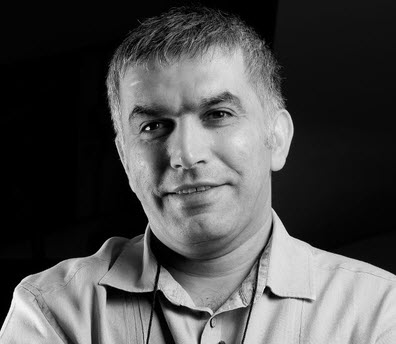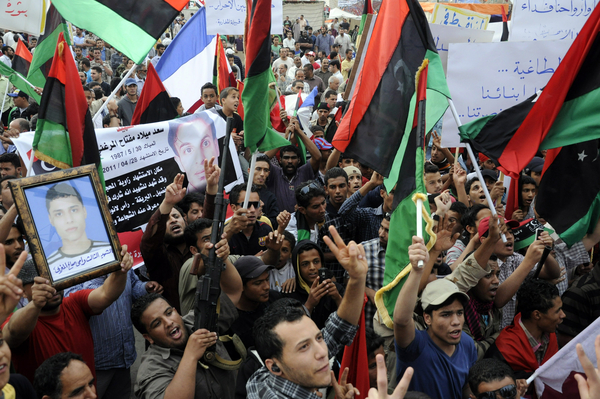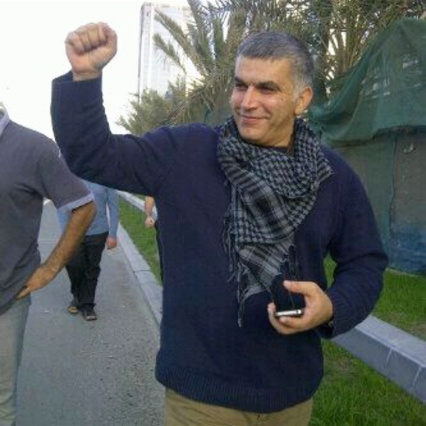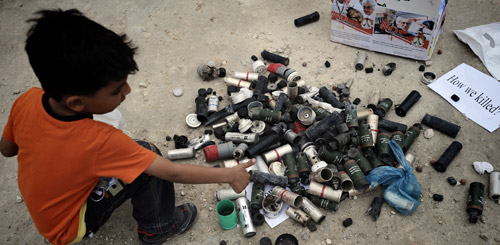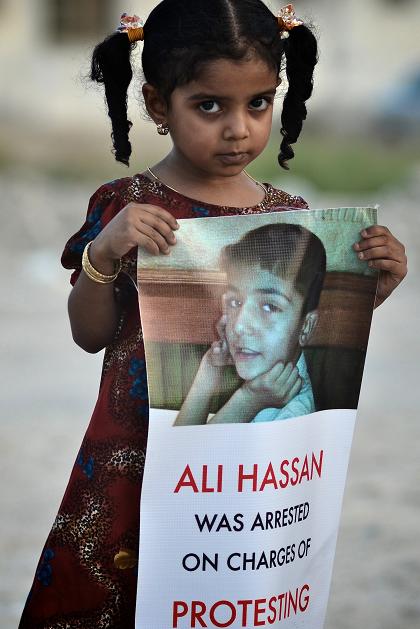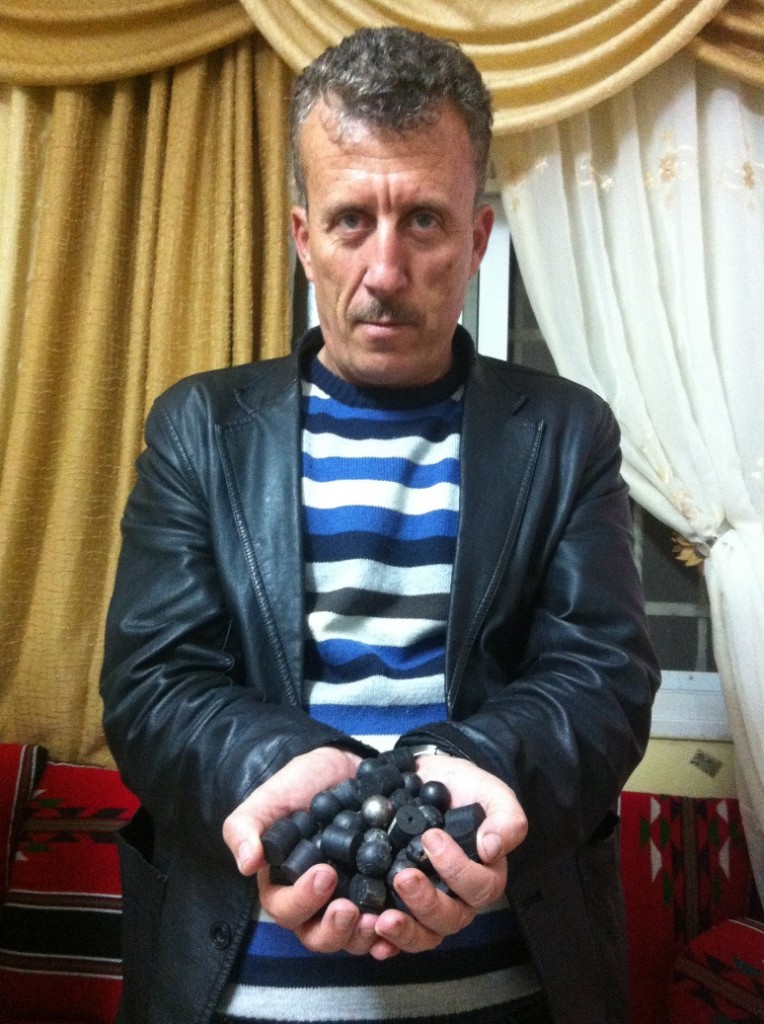
Former prisoner of conscience Bassem Tamimi holds plastic and rubber-coated bullets fired by Israeli forces.
Yesterday morning, US President Barack Obama arrived in Israel to much fanfare. He has said that he has come to listen. One place he should start is the Palestinian village of Nabi Saleh, located in the Israeli-occupied West Bank.
I visited Nabi Saleh last week as part of an Amnesty International research mission to the West Bank. The village sits atop a hill, facing the illegal Israeli settlement Halamish. The settlers of Halamish, like so many other Israeli settlers in the Occupied Palestinian Territories (OPT), are backed by the lethal force of the Israeli army.
For protesting against the settlement, the residents of Nabi Saleh have paid a heavy price. I spoke with village resident Bassem Tamimi, a man who Amnesty International previously declared a prisoner of conscience when he was imprisoned by Israel for involvement in peaceful protests. During Bassem’s most recent jail term, his brother-in-law Rushdi Tamimi, 31, was shot by Israeli soldiers at another protest in November 2012 and died days later in a hospital. In December 2011, another member of the village, Mustafa Tamimi, died after being hit in the face by a tear gas canister fired at close range from an Israeli military jeep.
